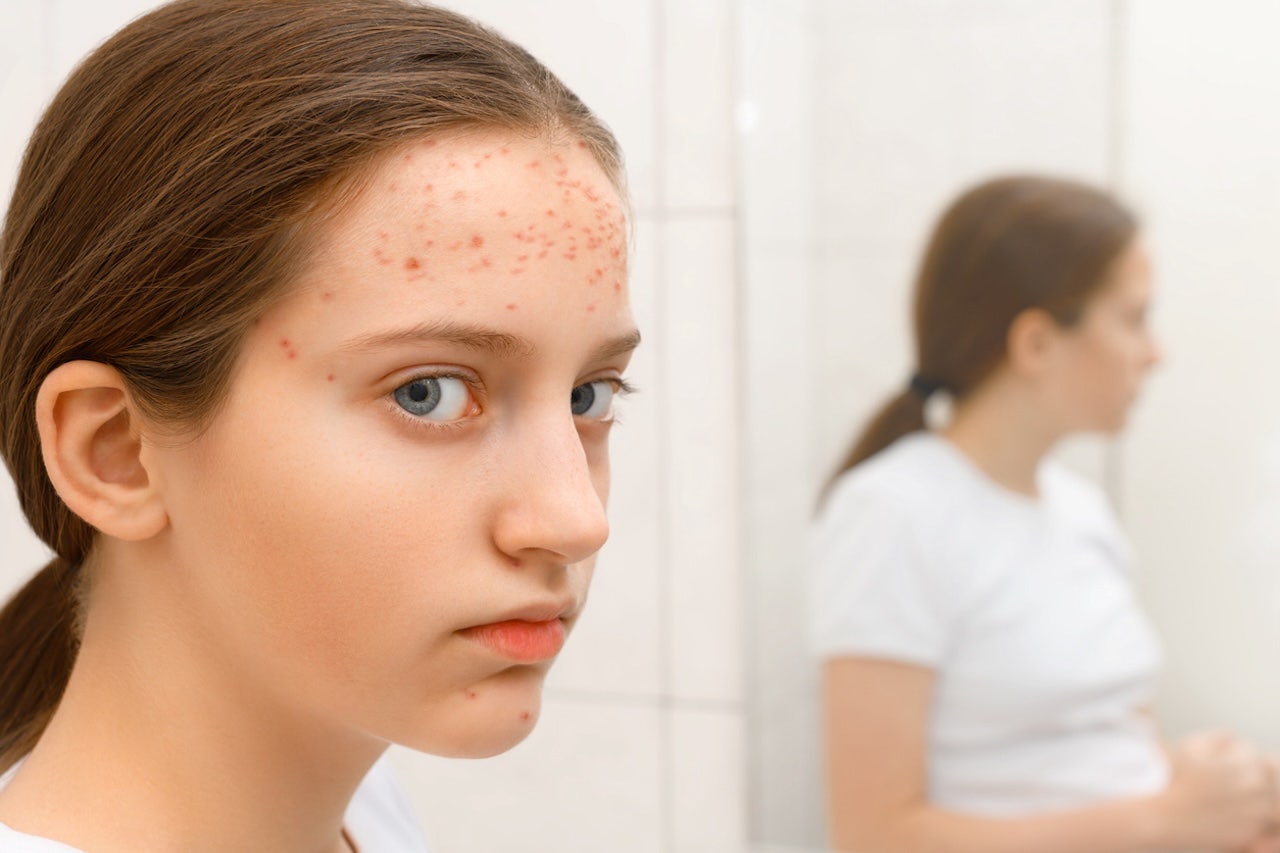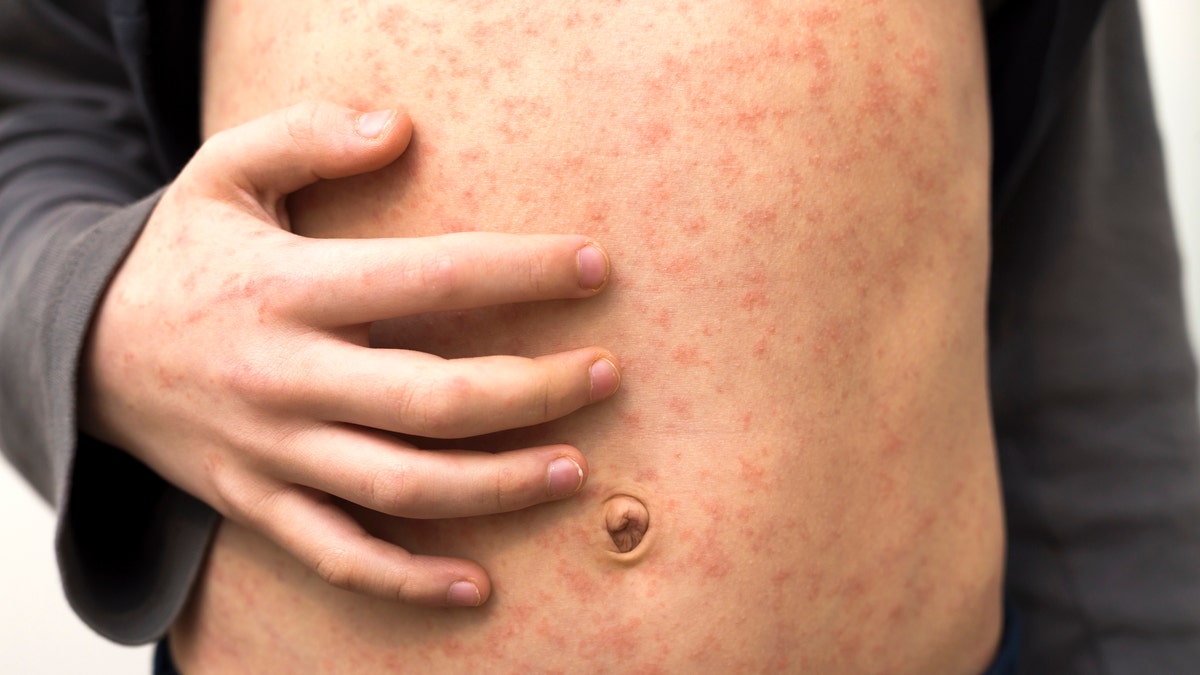Health
Amid measles outbreaks, Florida Department of Health speaks out against ‘false information’

Amid ongoing measles outbreaks at Florida schools, the state’s Department of Health released an updated statement on Wednesday, which was provided to Fox News Digital.
There have been a total of nine confirmed measles cases as of Tuesday in Broward County, with seven of them reported at Manatee Bay Elementary in Weston, according to local reports.
Last week, Florida Surgeon General Joseph Ladapo issued a letter to parents urging them to make their own decisions about whether to send their children to school.
AMID FLORIDA MEASLES OUTBREAK, SURGEON GENERAL LETS PARENTS DECIDE WHETHER TO SEND UNVACCINATED KIDS TO SCHOOL
Typical guidance from the U.S. Centers for Disease Control and Prevention (CDC) is for unvaccinated children who have not had the measles to stay home for up to 21 days in the event of a potential exposure at school.
Amid ongoing measles outbreaks at Florida schools, the state’s Department of Health has released an updated statement. (iStock)
“However, due to the high immunity rate in the community, as well as the burden on families and the educational cost of healthy children missing school, DOH is deferring to parents or guardians to make decisions about school attendance,” Ladapo’s letter stated.
MEASLES PROTECTION IS PARAMOUNT BEFORE TRAVELING OUTSIDE THE US, SAYS CDC
The Florida Department of Health (FDOH) noted that details of the agency’s investigations into the outbreak are “confidential,” and claimed that “many media outlets are reporting false information and politicizing this outbreak.”
FDOH released a statement to ensure that Floridians are “correctly informed.”

Doctors have expressed their support of measles vaccinations and cautioned against sending unvaccinated kids to school during an outbreak. (iStock)
At Manatee Bay Elementary, where the bulk of the cases have been reported, 97% of students have received at least one dose of the MMR immunization, according to the agency.
On Tuesday, the local news outlet WSVN reported that about 30% of students at Manatee Bay Elementary were unvaccinated, according to the school board.
“Outbreaks are occurring in multiple states, and the national immunization rate for measles is less than 92%,” the statement said.
MEASLES OUTBREAKS IN US, UK HAVE HEALTH AGENCIES ON HIGH ALERT: ‘BE VIGILANT’
When a case of measles is confirmed in a school, FDOH recommends that students who have not had a prior infection or vaccination remain at home for up to 21 days.
“This is the period of time that the virus can be transmitted. This recommendation has been made at Manatee Bay Elementary,” the agency said.

Amid measles outbreaks in various parts of the U.S., Florida surgeon general Dr. Joseph Ladapo has issued guidance to parents regarding kids’ school attendance. He also said, “This recommendation may change as epidemiological investigations continue.” (Paul Hennessy/SOPA Images/Sipa USA/Sipa via AP Images)
The last confirmed case of measles was on Feb. 15, 2024, which means the end of the 21-day infectious period is March 7, 2024.
“This may change as epidemiological investigations continue,” the statement noted.
FDOH said it has been working with Manatee Bay Elementary to educate parents on measles.
“Any parent who is concerned for their child, regardless of their immunization status, may choose to keep their children home.”
“Any parent who is concerned for their child, regardless of their immunization status, may choose to keep their children home and utilize continuous learning during this time,” the agency said.
“Due to the high immunity rate, as well as the burden on families and educational cost of healthy children missing school, the surgeon general’s current guidance ensures that parents or guardians are able to make the best decisions for their families regarding school attendance,” the statement continued.

As of Tuesday, there have been a total of nine confirmed measles cases in Broward County, with seven of them reported at Manatee Bay Elementary in Weston, according to local reports. (iStock )
Other doctors have expressed their support of measles vaccinations and cautioned against sending unvaccinated kids to school during an outbreak.
“At a time when there’s a resurgence of measles in the world and travel is not restricted, and people are coming into this country with measles, it’s extremely important that our children be vaccinated against it,” Dr. Marc Siegel, clinical professor of medicine at NYU Langone Medical Center and a Fox News medical contributor, told Fox News Digital last week.
CLICK HERE TO SIGN UP FOR OUR HEALTH NEWSLETTER
Amid the current measles outbreak, he said, “individual choice has to give way to public health and community preservation or safety,” Siegel said.
“The problem here is that if kids start going to school unvaccinated against measles, given how contagious it is and how effective the vaccine is, they are putting other children at risk,” the doctor added.
In a statement sent to Fox News Digital, a member of the District 2 School Board in Broward County stated that the board is working with the state and local health departments.
“I appreciate the leadership and support by the surgeon general and welcome all resources to help our parents and children,” says Torey Alston, who was formerly a county commissioner.
“The safety and academic success of our children remains the No. 1 priority.”
As of Feb. 22, 2024, a total of 35 measles cases had been reported by 15 jurisdictions across the U.S., in Arizona, California, Florida, Georgia, Indiana, Louisiana, Maryland, Minnesota, Missouri, New Jersey, New York City, Ohio, Pennsylvania, Virginia and Washington, according to the Centers for Disease Control and Prevention (CDC).
For more Health articles, visit www.foxnews.com/health.

Health
What Happens If You Eat Eggs Every Day? Nutritionists Share the Benefits

Sign Up
Create a free account to access exclusive content, play games, solve puzzles, test your pop-culture knowledge and receive special offers.
Already have an account? Login
Forgot your password?
Get back to the Sign In
Use left and right arrow keys to navigate between menu items.
Use escape to exit the menu.
Health
Ask a doctor: ‘I swallowed a bug — now what should I do?'

Most people have experienced that moment of discomfort when they realize a bug has wound up where it shouldn’t be — in their windpipe.
That includes Taylor Swift, who on more than one occasion has accidentally swallowed a bug while performing on stage in front of thousands of people.
It can be a startling and somewhat disgusting occurrence — but is this dangerous, or just a nuisance?
LOCAL DENGUE FEVER CASES CONFIRMED IN FLORIDA KEYS, SPREAD BY MOSQUITO BITES
Dr. Raj Dasgupta, a quadruple board-certified physician in California, shared with Fox News Digital the true impacts of accidentally swallowing a bug, and the best thing to do if it happens.
“Swallowing a bug can often happen accidentally when you’re eating or drinking outside, or if a bug flies into your mouth,” Dasgupta, who serves as chief medical advisor for Fortune Recommends, told Fox News Digital via email.
Dr. Raj Dasgupta, a quadruple board-certified physician in California, discussed the impact of accidentally swallowing a bug — and the best thing to do if it happens. (Sleepoplis)
“It can also happen if you’re talking or laughing outdoors. Sometimes it might even happen indoors if bugs are in your food or drink and you don’t realize it.”
ASK A DOCTOR: ‘HOW CAN I PREVENT SCARRING FROM BUG BITES AND POISON IVY?’
Swallowing a bug is usually not dangerous, Dasgupta noted.
“The stomach’s digestive acids usually break down the bug, and it is passed out of the body without causing harm,” he said.

“Swallowing a bug can happen accidentally when you’re eating or drinking outside, or if a bug flies into your mouth,” the doctor told Fox News Digital. (iStock)
If the bug carries harmful bacteria or parasites, however, it could cause gastrointestinal issues or allergic reactions, according to the doctor.
The type of bug can make a difference, he said.
“Bugs like beetles or ants are less of a concern, but bugs that are known to spread diseases — such as mosquitoes — might be riskier.”
If you happen to swallow a bug, drinking some water can help wash it down, Dasgupta said.

Taylor Swift has announced the accidental swallowing of bugs, mid-concert, on more than one occasion. (Marcelo Endelli/TAS23/Getty Images for TAS Rights Management)
“If you start feeling sick, like abdominal pain, vomiting or nausea, keep an eye on your symptoms,” the doctor said.
If you have severe stomach pain, ongoing vomiting, trouble breathing, or swelling, rash or itching, Dasgupta said to see a doctor.
CLICK HERE TO SIGN UP FOR OUR HEALTH NEWSLETTER
“If you know the bug could have diseases or if you have health conditions that might complicate things, it’s a good idea to get checked out to be safe,” he added.
For more Health articles, visit www.foxnews/health
Some bugs — including grasshoppers, beetles, termites, mealworms and even stink bugs — are actually considered edible in certain countries, and are prepared and eaten as part of meals, according to WebMD’s website.
Health
“I’m a Dietitian, and Here’s Why an Overly Restrictive Diet Can Backfire”

Sign Up
Create a free account to access exclusive content, play games, solve puzzles, test your pop-culture knowledge and receive special offers.
Already have an account? Login
Forgot your password?
Get back to the Sign In
Use left and right arrow keys to navigate between menu items.
Use escape to exit the menu.
-

 World1 week ago
World1 week agoOne dead after car crashes into restaurant in Paris
-

 Midwest1 week ago
Midwest1 week agoMichigan rep posts video response to Stephen Colbert's joke about his RNC speech: 'Touché'
-

 News1 week ago
News1 week agoVideo: Young Republicans on Why Their Party Isn’t Reaching Gen Z (And What They Can Do About It)
-

 Movie Reviews1 week ago
Movie Reviews1 week agoMovie Review: A new generation drives into the storm in rousing ‘Twisters’
-

 News1 week ago
News1 week agoIn Milwaukee, Black Voters Struggle to Find a Home With Either Party
-

 Politics1 week ago
Politics1 week agoFox News Politics: The Call is Coming from Inside the House
-

 News1 week ago
News1 week agoVideo: J.D. Vance Accepts Vice-Presidential Nomination
-

 World1 week ago
World1 week agoTrump to take RNC stage for first speech since assassination attempt















